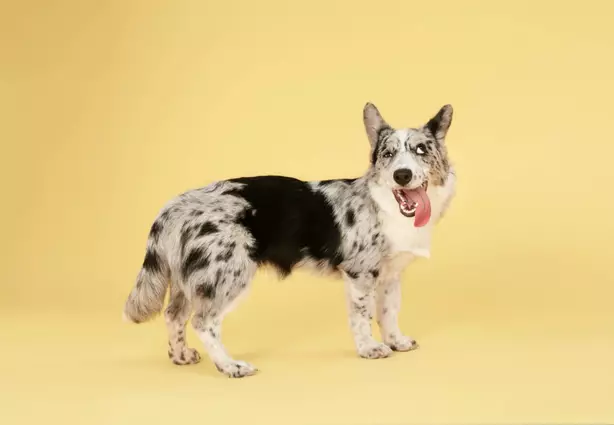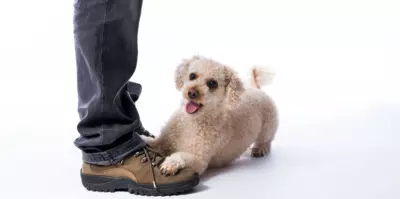Why Do Dogs Pant?
- 16 Aug 2023
- 4m read
.jpeg)
Dogs are wonderful companions that bring joy and happiness into our lives. They have their own unique behaviours that sometimes leave us puzzled. One such behaviour is panting. Panting is a natural and common behaviour in dogs, but have you ever wondered why your furry friend engages in this activity?
In this article, we will delve into the various reasons why dogs pant, whether it's in the car, at night, or seemingly for no reason at all.
Reasons Why Dogs Pant
It’s important to try and understand why your dog may be panting, so that you can recognise whether it is normal behaviour, or something to be concerned about. The most common reasons why dogs pant include:
Thermoregulation
Imagine wearing a fur coat in the scorching heat—sounds uncomfortable, right? Well, dogs have a unique challenge when it comes to cooling down.
Unlike humans, they don't sweat profusely all over their bodies. Instead, they rely on panting as their primary cooling mechanism. As air passes over their moist tongue and the lining of their lungs, it evaporates, dissipating heat and regulating their body temperature.
Expressing excitement
Just like kids at a carnival, dogs often can't contain their excitement. Whether it's the sight of their favourite human returning home, the promise of a walk, or the anticipation of playtime, dogs tend to let their enthusiasm bubble over.
Panting in these moments isn't just a coincidence—it's a physical manifestation of their heightened emotional state. Rapid panting is closely linked to an increased heart rate, which often accompanies exhilaration.
Stress and anxiety
Our furry friends might not speak our language, but they're incredibly adept at conveying their emotions.
When dogs find themselves in stressful situations, such as thunderstorms, visits to the veterinarian, or confronting unfamiliar surroundings, panting can become their voice. It's a telltale sign that something is amiss and that they're attempting to cope with their unease.
If you notice your dog panting in these situations, it's a signal to offer comfort and reassurance.
Exertion
After your dog has joyfully sprinted around the park and chased their favourite playmate, what comes next? Panting, of course. After all, they're not only burning off energy but also generating a fair bit of body heat.
Panting post-exercise serves to replenish oxygen levels, cool down their core temperature, and regulate their physiological balance.
Underlying health conditions
While panting is often a benign and natural behaviour, there are instances where it can indicate more than meets the eye.
Excessive panting—particularly when coupled with restlessness, disinterest in activities, or changes in behaviour—can signal an underlying health issue. Dogs experiencing pain, discomfort, or even certain medical conditions might resort to panting as a means of expressing their distress.
Why Do Dogs Pant in the Car?
Dogs can get excited when they see new surroundings and experience new scents. This excitement can lead to increased heart rate and breathing, causing them to pant.
Moreover, some dogs may associate car rides with trips to the vet, which can trigger anxiety and stress. Panting is their way of coping with these emotions.
The car's environment can also contribute to panting. Unlike humans, dogs can't regulate their body temperature as efficiently. If the car is hot and lacks proper ventilation, your dog might start panting to cool down. Ensuring your car is well-ventilated and comfortable for your furry friend can help alleviate this panting.
Why Do Dogs Pant at Night?
Just like humans, dogs can experience dreams during their sleep cycles. This dreaming can lead to increased heart rate and breathing, causing them to pant. It's not uncommon to observe your dog's paws twitching or their eyes moving under closed lids during these dream sequences.
Furthermore, dogs might pant at night due to temperature changes. If your dog is sleeping in a room that's too warm, their bodies may struggle to regulate their temperature, leading to panting. Providing a comfortable and cool sleeping environment can help mitigate this nighttime panting.
Should I Worry About Dog Panting?
While panting is a normal behaviour for dogs, it's essential to distinguish between normal panting and excessive panting.
Normal panting occurs after exercise or in hot weather as a way for dogs to cool down. Excessive panting, on the other hand, could be a sign of an underlying health issue.
Excessive panting could indicate conditions such as heatstroke, respiratory problems, pain, or anxiety. If your dog is panting excessively and appears restless or uncomfortable, it's advisable to consult your vet.




.png)